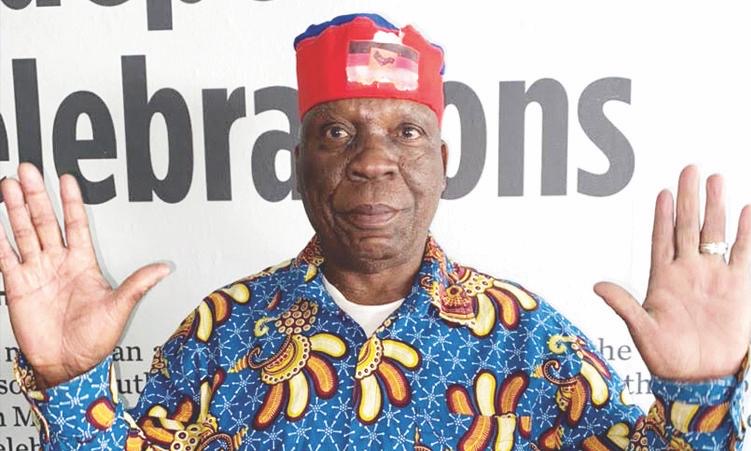Over the past five years, the highest courts in Namibia and Botswana have made significant decisions in favour of minority groups’ human rights through judgements and court orders.
However, the implementation of these orders related to the rights of LGBTQI+ people in Botswana and Namibia has not been satisfactory so far.
In 2016, the Botswana Court of Appeal ordered the Registrar of Societies to register the Lesbians, Gays and Bisexuals of Botswana (Legabibo) after they had been denied registration based on the criminalisation of same-sex sexual conduct.
In 2017, the High Court of Botswana pronounced that denying a transgender man legal gender recognition undermines their dignity and humanity and ordered the home affairs ministry to change his identity documents from female to male.
In 2021, the Court of Appeal in Botswana decriminalised consensual same-sex sexual conduct.
In May 2023, the Supreme Court of Namibia ordered the government to recognise same-sex unions concluded outside Namibia, in countries where same-sex marriages are legal, in terms of the Immigration Control Act.
While all these cases constitute landmark cases in securing and guaranteeing the rights of LGBTQI+ people, there is a growing trend of non-implementation of such judgements.
SELECTIVE IMPLEMENTATION
Government officials have partially or selectively implemented or completely disregarded the court decisions.
In the Legabibo case, the Botswana Court of Appeal found it was unconstitutional to deny registration under the assumption that LGBTQI+ are not recognised in the bill of rights and would offend the nation’s morality.
The court found that the LGBTQI+ community, like any other citizen or group in Botswana, have the right to freedom of association, expression and assembly, and ordered Legabibo to be registered. The order was promptly fulfilled.
However, seven years later, in March 2024, an LGBTQI+ group’s efforts to register were met with sentiments similar to those before the Legabibo judgement.
Senior public officials resisted the highest court’s decision to register the new group.
Although their reasons are not stated as clearly as the Legabibo rejection, government officials are still surreptitiously blocking the registration of LGBTQI+ organisations.
Similarly, we have observed a selective application technique unfolding in legal gender recognition cases.
In this case, the government officials interpreted this as a single order that only applies to applicants and not “all persons”.
INDIVIDUALS’ EXPERIENCES
According to anecdotal evidence based on the experiences of individuals who sought legal gender recognition, they are instructed to acquire individualised court orders, which is a
complete misinterpretation of the court’s instructions, burdening the courts to issue duplicate orders.
This selective interpretation is a covert move by officials to undermine judicial decisions and transfer the responsibility and burden of implementation to resource-constrained individuals, limiting access to justice.
What is also curious is why the court system does not address repeat applications on the same issue.
Botswana’s attorney general acted in contempt of the judgement with the decriminalisation court order.
Instead of scrapping sections 164 (a) and (c) of the penal code, which prohibit consensual sex between same-sex partners, the AG blatantly ignored the court order and put a bill before parliament for debate.
Botswana’s highest court made a carefully considered decision to decriminalise, as indicated by a statement from SALC and by many contributors on the issue; there is no need to debate, the court has decided.
NAMIBIA
In Namibia’s case, compliance with the court order means recognising foreign partners in same-sex marriages with their Namibian partners as spouses, thereby granting them immigration status that allows them to live and work in Namibia.
Despite the Ministry of Home Affairs, Immigration, Safety and Security’s commitment to comply, government officials still refuse to respect the Supreme Court ruling, as indicated by Danny Digashu’s experience: “In one of my many visits to the immigration offices, the officer informed me that the court order was only meant for couples directly engaged in the court case, unaware that I was one of those couples.
“I got the impression that immigration officials have adopted a dishonest tactic to deter other same-sex couples, letting them believe the judgement does not protect them.”
One of the most significant contributors to non-compliance is the media.
A report on the Supreme Court decision in the Digashu/Seiler-Lilles case ran the sensational headline ‘Supreme Court gives legal status to same-sex marriages’, misinforming the public and fuelling negativity.
Misinformation affects not only the litigants and community members, but also feeds already hostile public attitudes towards LGBTQI+ people.
Members of parliament and religious communities put pressure on government officials.
Unfortunately, parliament responded with a marriage bill that contradicted the judgement, instead of clarifying what the ruling means and who it affects.
PERSONAL TOLL
Public officials reflect legislators’ sentiments, disregarding democratic principles, the rule of law and justice for all, which are clearly stated in the Constitution, further undermining the independence of the judiciary.
These are only a few of the many court orders government officials have disregarded
to the disadvantage and inconvenience of the minority who went to court to seek redress.
For example, in Digashu’s case, he is given a visitor’s visa every time he leaves the country,
which means he is forced to exit the country when it expires or face the wrath of the law.
The cost of frequent travel and the personal emotional toll on him and his family is
insurmountable. Let alone constant dealings with questions, often followed by ridicule, from immigration officials.
Therefore, the question is what should happen to government officials who disregard court orders?
Kenya’s chief justice offers a solution to this conundrum.
Recently, the chief justice observed that senior government officials are guilty of defying court orders and suggested remedies such as the impeachment of individual officers responsible.
Botswana and Namibia must take a leaf out of that book.
TRANSPARENCY
Also of great concern is that government officials are not transparent about the limitations of court orders to enable litigants and beneficiaries to seek clarification from the courts, nor are they open to engaging with civil society and affected communities to improve compliance.
Are the court orders vague and therefore challenging to implement?
Being transparent about implementation constraints will go a long way to guiding civil society on how they can support the
government.
Despite being resource-constrained, civil society organisations must continue to monitor compliance
and return to court for enforcement, including publishing non-compliance in the media for public engagement.
In conclusion, the rule of law requires that all court decisions be implemented promptly, thoroughly and effectively.
The government has no choice on whether to execute or not execute the court orders.
Danny Digashu and Anna Mmolai-Chalmers are consultants at the Southern Africa Litigation Centre (SALC)
Stay informed with The Namibian – your source for credible journalism. Get in-depth reporting and opinions for
only N$85 a month. Invest in journalism, invest in democracy –
Subscribe Now!







